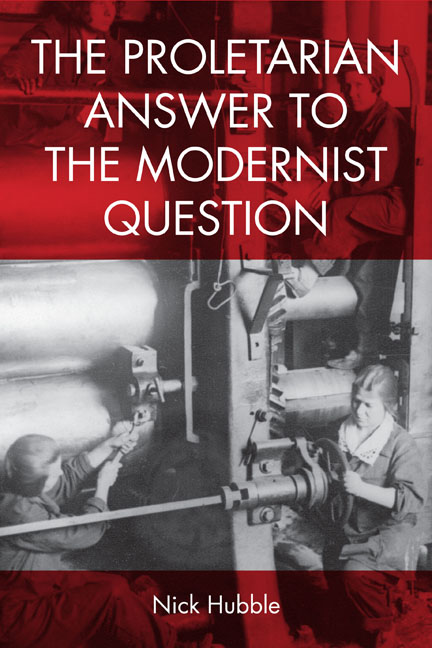Book contents
- Frontmatter
- Contents
- Acknowledgements
- Introduction
- 1 ‘Her Heritage Was that Tragic Optimism’: Edwardian Pastoral
- 2 ‘The Common Life’: Women and Men after the General Strike
- 3 ‘She Had Finished with Men Forever’: Lewis Grassic Gibbon's Grey Granite
- 4 ‘The Raw Material of History’: John Sommerfield's May Day
- 5 ‘None of That “My Good Woman” Stuff’: Outsider Observations
- Conclusion
- Bibliography
- Index
3 - ‘She Had Finished with Men Forever’: Lewis Grassic Gibbon's Grey Granite
Published online by Cambridge University Press: 23 June 2018
- Frontmatter
- Contents
- Acknowledgements
- Introduction
- 1 ‘Her Heritage Was that Tragic Optimism’: Edwardian Pastoral
- 2 ‘The Common Life’: Women and Men after the General Strike
- 3 ‘She Had Finished with Men Forever’: Lewis Grassic Gibbon's Grey Granite
- 4 ‘The Raw Material of History’: John Sommerfield's May Day
- 5 ‘None of That “My Good Woman” Stuff’: Outsider Observations
- Conclusion
- Bibliography
- Index
Summary
Not all revolutionary writers
In February 1935, the month that he died, Gibbon contributed to the discussion in Left Review, on the statement of aims of the Writers International (British Section) – notionally the parent body of the journal – by describing its claims, that English literature and theatre had been decadent for the past twenty years and showed a culture in collapse, as ‘bolshevik blah’: ‘Neither in fiction, sociological writing, biography (to take only three departments) was there work done half so well in any Victorian or Edwardian period of equal length’ (Gibbon 1935: 179). He castigated ‘revolutionary’ writers for not only failing to read their contemporaries but nonetheless still criticising them with ‘bad Marxian patter and the single adjective “bourgeois”’; before adding ‘Not all revolutionary writers (I am a revolutionary writer) are cretins’ (Gibbon 1935: 179). Instead of organising writers into the three categories suggested in the statement of aims – anti-fascists, those expressing the class struggle, and those defending the Soviet Union – he suggested restricting membership of a union of revolutionary writers to those who could prove their work was of literary value and then setting them the task of properly analysing contemporary literature and its constituent movements. Ironically, ten pages further on in the same issue, Gibbon's Grey Granite (1934) was being praised by John Lehmann as ‘an extremely remarkable and courageous attempt’ by a ‘bourgeois intellectual’ to write proletarian literature (Lehmann 1935: 190).
Gibbon was in fact the son of a crofter who identified himself as being of ‘peasant stock’ (Gibbon 2001: 83) but because he was not from the industrial proletariat, a rigid binary perspective would situate him as bourgeois. As an exception to Andy Croft's argument that the term ‘proletarian literature’ was not generally used by communists and their allies by 1935, Lehmann's review is a useful indicator of the persistence of such binary viewpoints, and the confusion they created, on the left following the 1934 Soviet Congress's adoption of the concept of ‘socialist realism’. For he clearly sees the novel as an almost exemplary committed account of the class struggle by a bourgeois writer that appears ‘intensely real and authentic’ (Lehmann 1935: 191).
- Type
- Chapter
- Information
- The Proletarian Answer to the Modernist Question , pp. 112 - 140Publisher: Edinburgh University PressPrint publication year: 2017



